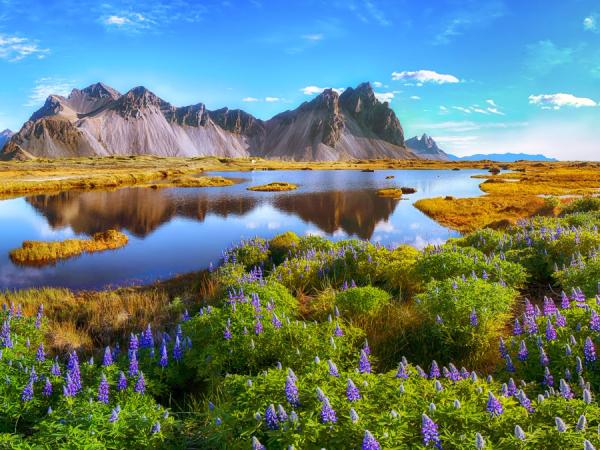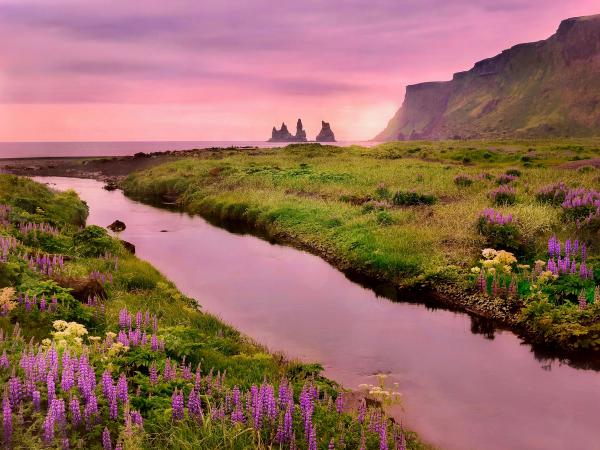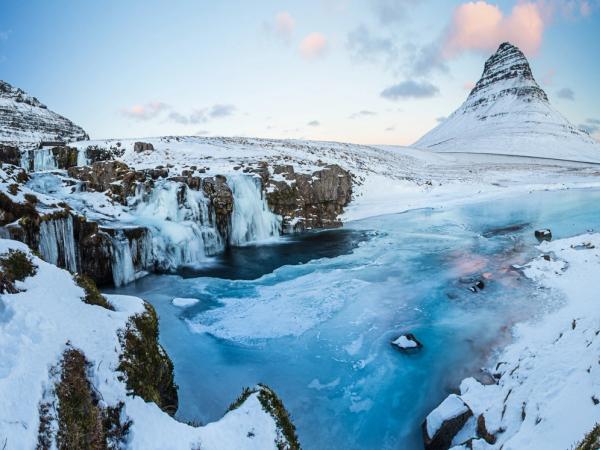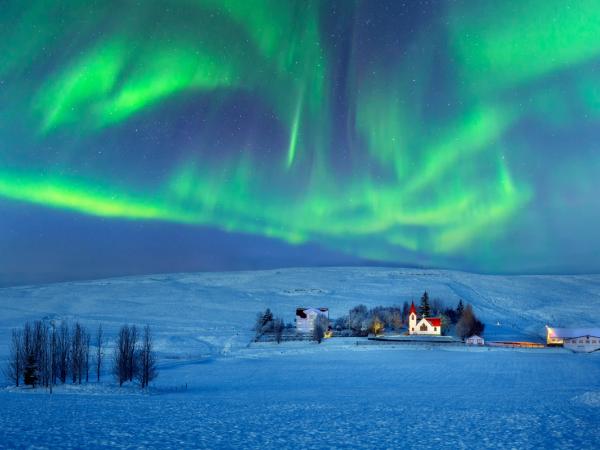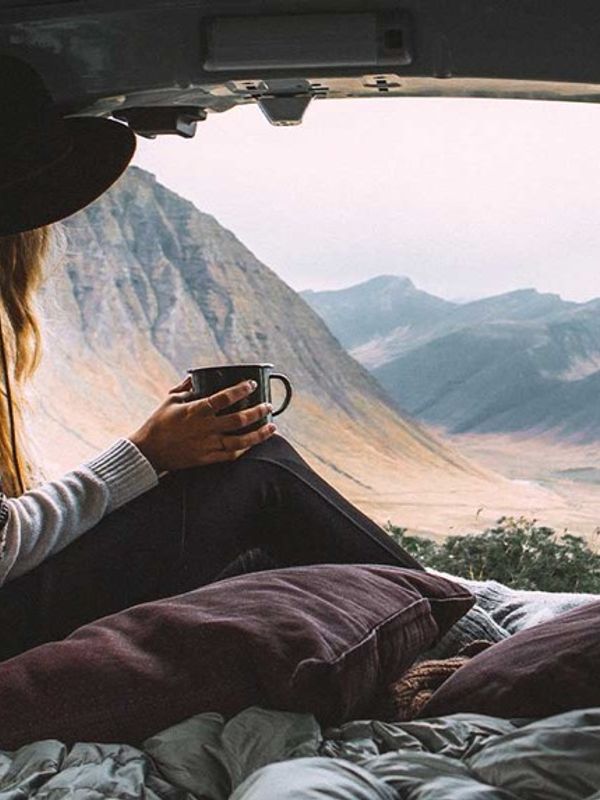
How to Plan an Iceland Campervan Trip
An Iceland campervan trip is without a doubt one of the best ways to see the country. The ring road loops perfectly around Iceland, taking in all but a few of the regions. It’s readymade for road trips in a campervan.
Why You Should Travel Iceland in a Campervan
Iceland is a special country that’s seemingly made for road trips in a campervan. With the ring road, you’ll easily be able to take in a lot of the wonderful landscapes you’ve seen in photos.
Aside from that, traveling in a campervan lets you camp out in the middle of all that nature you’re here to see. The campsites are, for the most part, fantastic, offering a quiet and cheap alternative to the pricey hotels. And waking up with amazing views of mountains, fjords, and glaciers from your van is an experience you won’t soon forget.
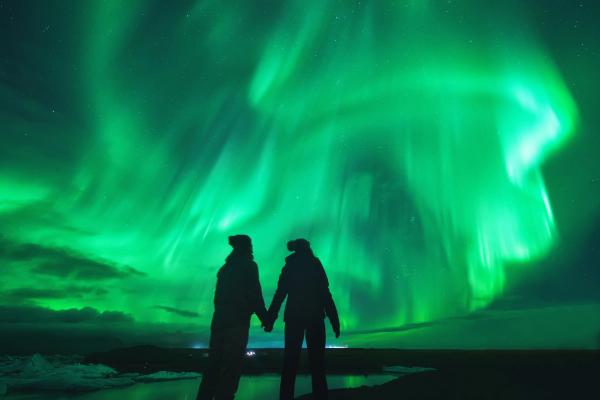
The Best Time to Visit Iceland for a Campervan Trip
So, when should you travel to Iceland for your campervan trip? The answer to this question varies depending on what you’re after.
In general, we believe the best time to visit Iceland for a campervan trip is in either May/June or September/October.
During these times, the mad rush that is July and August either hasn’t started or has finished. The weather is generally nice, and there’s still a chance to see the northern lights (May, September, October) and the midnight sun (June).
However, July and August also make a pretty good case for themselves. This time of year enjoy the best weather, hopefully with a lot of clear, calm days, and a bit of sun. Long days let you explore as you wish, and it’s also peak time for Iceland’s wildlife. Puffins flock to the cliffs, and whales feed off the coast.
Traveling in the winter is a different beast altogether. If you’re planning a trip during Iceland’s coldest months.
How Many Days Should You Spend in Iceland?
While the final answer will, of course, be up to you, we strongly recommend spending 7 days in Iceland. This is just the right amount of time for a great trip around the ring road.
Of course, longer is always better. 10-day Ring Road trips let you linger in places you like or explore off the beaten track a bit more. 14-day trips are even better.
Do I Need a 4x4 in Iceland?
You might be wondering whether you need to rent a 4x4 for your road trip in Iceland. If you’re coming in the summer, and are keen to visit the Icelandic Highlands, then yes, you will absolutely need one.
The highlands are traversed by a series of very rough tracks known as the F-Roads. In some places, they’ll bump over lava fields, ford rivers, and zig-zag over heady mountain passes. It’s a challenging area for travel, but immensely rewarding. Legally, 4x4s are the only cars allowed on these roads. Taking a regular car on these roads is not only against the law, but very dangerous.
If your plan is to stick to the ring road with a few detours here and there, a regular campervan will be fine. If you’re traveling in the winter, you might want to rent a 4x4 for your peace of mind.
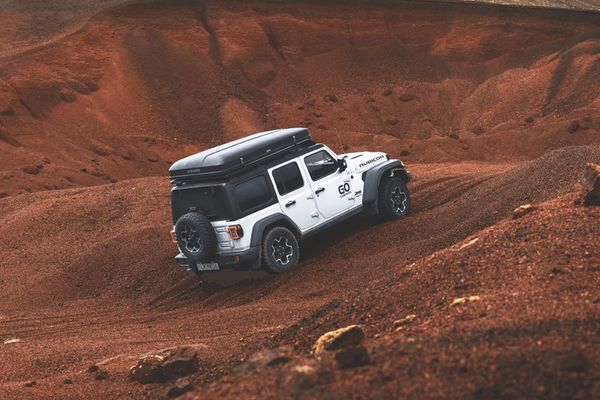
Camping Food in Iceland
Pasta, hot dogs, instant noodles – when you’re on a campervan trip in Iceland, these are the foods you’ll want to focus on. After a long day of exploring, cooking something quick and easy is key, letting you relax and unwind at your campsite.
Our fleet of campervans in Iceland comes with everything you’ll need to whip up quick and easy meals on the go. A gas stove, pan, pot, plates, bowls, and cutlery are all provided.
Again, keeping things simple is key. Fry up some hot dogs, boil some pasta, or whip together some instant noodles with some fresh veggies. Fruit, skyr (Icelandic yogurt nuts, and muesli bars are also perfect for a quick bite before heading off on a hike.
There are of course a lot of restaurants in towns around Iceland, letting you sample some of the more modern food. However, food in Iceland can be expensive, so if you’re on a budget, it might be best just to sample only one or two restaurants.
Campsites Around the Icelandic Ring Road
Even though you have a campervan, Icelandic law states that you must stay in the campsites. Luckily, there’s a huge number of campsites across the country, meaning that you’ll never be far from one when it’s time to stop driving and sleep.
There are a lot of campsites that are open only during the summer; others are open year-round.
Pre-booking campsites in Iceland isn’t necessary at all. Most campsites also accept payments via credit cards.
Icelandic Packing List
Iceland is generally chilly year-round – even if you’re coming in the summer, you’ll need a good jacket. Hiking boots are also recommended.
Click here to see the full list of things you should pack for your camper trip in Iceland.
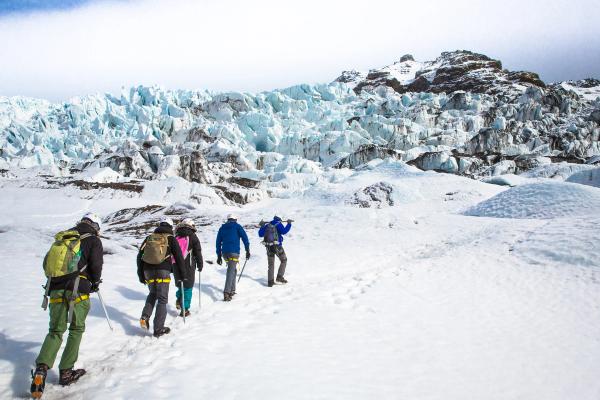
How Much Does an Iceland Trip Cost?
How much your Icelandic trip will cost depends on what kind of traveller you are. First, if you haven’t already, search through our range of campervans in Iceland to see what’s available for your dates and how much it will cost. This will give you a good baseline for your budget.
Afterwards, you’ll need to think about paying for fuel, campsites, and groceries.
For fuel, prices generally hover around 200–230 ISK per litre. Filling up our Go Camper 2-Pax from near-empty will generally cost around 7,000–8,000 ISK and will last for around 800km.
For campsites, each night usually cost around 1,500–2,000 ISK. Sometimes, the campsite will charge per person and not per campervan, doubling the cost. Some campsites also use coin-operated showers.
Other things you might need to pay for in Iceland:
- Entrance to pools and geothermal baths (like the Blue Lagoon)
- Tours on the glaciers
- Parking in some places (for example, at Seljalandsfoss and the Stokksnes Peninsula)
- Restaurant meals
- Entrance to museums
Conclusion
Traveling Iceland in a campervan is a great way to see the country’s amazing landscapes and enjoy the freedom to explore at your own pace. With plenty of campsites, stunning views, and flexible travel options, it’s an unforgettable experience. Whether you’re driving the Ring Road or heading into the Highlands, being prepared with the right gear, food, and budget will make your trip easier. No matter when you visit, a campervan trip lets you wake up to incredible scenery and experience Iceland’s nature up close.
This information should have given you a good idea how to start planning your Icelandic campervan trip. If you’re ready to book, click here.
Góða ferð!

